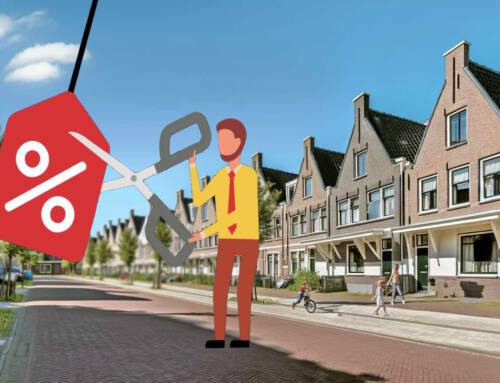Tip 3: Income Tax Savings
How to Save Money on Your Yearly Tax Declaration
Discover how to cleverly turn tax time into a lucrative savings season in the Netherlands. Our thorough guide demystifies complex Dutch tax deductions and shares savvy, actionable tips to confidently keep more euros securely in your pocket.

Maximize your tax savings in the Netherlands with our expert insights on deductibles and smart filing strategies.
Introduction
It’s that time of the year again – from March 1st, we can start filing our yearly tax declarations for 2023 in the Netherlands. This article is not your typical step-by-step guide or a set of direct instructions. Instead, we delve into a comprehensive list of tax deductibles, uncovering opportunities for savings in a system that might seem daunting at first.
As you navigate through these deductibles, remember that tax laws are intricate and continually evolving. Therefore, it’s crucial to confirm the latest information with De Belastingdienst, ensuring your approach is both current and compliant.
We also want to emphasize the value of professional advice for those with more nuanced financial situations. In many cases, the insights and expertise of a tax professional can reveal substantial savings, far outweighing their fees. This article is your guide to understanding the Dutch tax landscape for the year 2023. It’s about making informed decisions that can lead to significant financial advantages. Let’s dive in and discover how you can optimize your tax declaration for the past year.
Navigating Yearly Income Tax Filing in the Netherlands
What are Yearly Income Taxes?
Yearly income taxes in the Netherlands are a comprehensive assessment of taxes due on various sources of income over a calendar year. This encompasses not only taxes on employment income but also profits derived from business activities, and returns from assets and savings. The Dutch tax system is intricately structured into different categories, known as ‘boxes.’ Each box is designed to deal with a specific type of income and has its own set of rules and tax rates.
- Box 1 covers income from employment and housing, including wages, pensions, and benefits, as well as income from a primary residence.
- Box 2 is for income from substantial interests in a company, typically relevant for shareholders.
- Box 3 deals with income from savings and investments.
These boxes collectively determine your total tax liability. Understanding which box your income falls into is crucial for accurate tax declaration. Additionally, certain tax credits and deductions are available, which can reduce the overall tax burden. For expats, special regulations like the 30% ruling can significantly impact tax calculations.
How to Do Your Yearly Income Taxes
Filing income taxes in the Netherlands is a detailed process that requires careful attention to ensure accuracy and compliance. Here are the steps involved:
-
Document Gathering:
Begin by collecting all necessary documents. This includes income statements, such as salary slips or profit statements, and receipts for potential deductions. Don’t forget documents related to mortgage interest, healthcare costs, or education expenses, as these can influence your tax liabilities or refunds.
-
Accessing the Tax Portal:
Log in to the online tax portal on the Belastingdienst website. This is done using your DigiD, a digital identification system for accessing government services in the Netherlands. First-time users will need to apply for a DigiD beforehand.
-
Review and Adjust Pre-filled Information:
The tax portal often pre-fills certain information based on data available to the Belastingdienst. Review this information thoroughly. Make necessary adjustments to reflect any additional income not automatically included, such as freelance earnings or foreign income, and add any deductions you’re eligible for.
-
Calculating Tax Liability or Refund:
Use the digital tools provided on the portal to calculate your tax liability or potential refund. These tools can help you understand how different incomes and deductions affect your final tax position.
-
Submission and Deadlines:
Submit your tax return by the deadline, typically May 1st. If you foresee difficulties in meeting this deadline, you can request an extension. Extensions can prevent penalties and give you more time to gather documentation or seek professional advice.
-
Follow-up:
After submission, the Belastingdienst may take some time to process your return. You will receive a provisional or final assessment indicating whether you owe taxes or are due a refund. Keep an eye on your email or post for any communication from the Belastingdienst.
By following these steps and being meticulous about your documentation and deadlines, you can ensure a smoother tax filing experience in the Netherlands.
Where to Get Help with Your Tax Declaration
Navigating the complexities of tax declarations can be challenging, but you’re not alone. Whether you’re an expat unfamiliar with the Dutch tax system or a local seeking clarity, various resources are available to assist you. Here’s a rundown of where you can find help:
-
Friends, Family, and Acquaintances:
Sometimes, the help you need is closer than you think. Reach out to people in your social circle. You might find a neighbor who’s an accountant or a friend’s relative working at the Belastingdienst. Remember, to authorize someone else to fill your tax declaration, you’ll need a DigiD authorization code.
-
Belastingdienst Website and Social Media:
The Belastingdienst website is a treasure trove of information. It offers step-by-step guides, answers to frequently asked questions, and changes in the tax system. Additionally, you can interact with their webcare team through Twitter, Facebook, or Instagram for quick queries. Remember, avoid sharing personal details on social media platforms.
-
BelastingTelefoon:
For those who prefer speaking to someone, the BelastingTelefoon (0800-0543) is a free service. It operates Monday to Thursday from 8 am to 8 pm and Fridays from 8 am to 5 pm. Have your BSN (Burgerservicenummer) ready to expedite the process. Check their website for current wait times.
-
Libraries:
Many libraries in the Netherlands offer free digital tax filing assistance through question hours. This service is particularly beneficial if you don’t have access to a computer or the internet. Local social workers and legal experts often conduct these sessions. Find a participating library near you through their website.
-
Unions and Associations:
Members of unions like FNV, CNV, and VCP often have access to free tax filing help. These organizations typically have volunteers who assist with income tax declarations.
-
Professional Tax Advisors:
For more complex situations, like property purchases or inheritance, a professional tax advisor can be invaluable. Ensure they are registered with the Register Belastingadviseurs for reliable and specialized service. While this option incurs a cost, the benefits often outweigh the expense.
-
Local Tax Offices:
If other avenues don’t suit your needs, you can visit a Belastingdienst office. Make an appointment via the BelastingTelefoon. Remember, a DigiD authorization code is required for assistance at a tax office.
Unlock tax-saving secrets for individuals – delve into deductions that can boost your budget.
Tax Deductibles for Individuals
Now that you know where to seek assistance, let’s focus on maximizing your tax benefits. The Netherlands offers various deductibles that can significantly reduce your tax liability, especially for individual taxpayers. From health and medical expenses to specific homeowner deductions, understanding these can be the key to unlocking considerable savings. Let’s delve into these deductibles and explore how they can positively impact your finances.
Health and Medical Expenses: An Insight into Tax Benefits
In the Netherlands, there’s a really useful way to save on taxes that you might not know about. If you have health and medical expenses, you can actually get some significant tax benefits. It’s definitely worth looking into, especially if you want to make the most of your finances and find some smart ways to save money. Trust me, understanding these deductibles can really make a difference in your budget!
Transportation Costs for Medical Purposes:
-
Travel to Healthcare Facilities:
Costs for traveling to hospitals, doctors, or pharmacies can be deducted. This is particularly beneficial for those requiring regular medical check-ups or treatments.
-
Additional Travel Expenses Due to Illness or Disability:
If your illness or disability necessitates more expensive transportation methods, these additional costs are deductible. This provision acknowledges the extra financial burden that health issues can pose.
-
Hospital Visit Travel Expenses:
Travel costs incurred for visiting hospitals, either for personal treatment or accompanying a dependent, are considered deductible. This includes public transport, taxi fares, or fuel costs for personal vehicle use.
Diet and Household Needs:
-
Prescribed Diet Costs:
If a doctor or dietitian prescribes a specific diet for medical reasons, the additional costs incurred can be deducted. This recognizes the necessity of special diets for certain medical conditions.
-
Expenses for Additional Household Help:
In cases where illness or disability necessitates extra household assistance, these expenses can be claimed. This helps alleviate the financial strain of needing additional support at home.
-
Costs for Special Clothing and Bedding:
Extra expenses for clothing and bedding, specifically required due to medical conditions, are deductible. This includes items like orthopedic shoes or hypoallergenic bed linens.
Deductible Healthcare Costs Not Covered by Insurance:
-
‘Aftrek zorgkosten’ (Deductible Healthcare Costs):
Expenses for healthcare that are not covered by insurance, and are directly linked to illness or necessary care, can be claimed. This includes costs like certain medical treatments, therapies, or medications not covered by standard health insurance plans.
Understanding and utilizing these deductions can significantly impact personal finances, especially for those with ongoing health-related expenses. It’s important to keep detailed records of all healthcare-related expenses and consult with a tax professional if needed. This ensures that all eligible expenses are correctly claimed, optimizing the potential tax benefits.
Home Ownership and Mortgage-Related Expenses in The Netherlands
For homeowners in the Netherlands, delving into the details of tax deductions related to home ownership and mortgages is a crucial aspect of savvy financial management. Both deductible and non-deductible expenses significantly influence how you plan and manage your finances. It’s a bit like balancing a scale – getting it right can have a meaningful impact on your financial health.
Deductible Home Ownership and Mortgage-Related Expenses:
-
Interest on Loans for Deductible Interest:
This is a tax rule in the Netherlands that allows you to deduct the interest paid on a loan if that loan was specifically taken out to cover the interest on another loan, which is also tax-deductible. For example, if you have a mortgage with deductible interest and you take out a second loan solely to pay the interest on your mortgage, the interest on this second loan can also be deducted on your taxes. This rule can be particularly helpful for managing the financial burden associated with refinancing or additional borrowing for home-related expenses, as it provides an opportunity for tax relief on the interest paid on both loans.
-
Costs of a Bank Guarantee for Deposits:
The expenses incurred for a bank guarantee to secure a deposit for a home purchase are deductible, reducing the initial financial burden of securing a property.
-
Advising and Mediation Costs for Buying a Home:
Fees for professional advice and mediation during the home buying process are deductible, encouraging homeowners to seek professional guidance.
-
Periodic Payments for Ground Lease, Building Leasehold, or Superficies:
These payments to landowners for ground lease, building leasehold, or superficies are deductible, providing relief to homeowners who do not own the land their house is built on.
-
Mortgage Interest Deductions:
Under ‘eigenwoningschuld’, mortgage interest is deductible for homeowners.
-
Notariskosten for Mortgage Deed:
The notary costs for the mortgage deed, including VAT, are deductible.
-
Kadasterkosten for Mortgage Deed:
The cadastral rights for the mortgage deed are also deductible.
-
Taxatiekosten:
The valuation costs for obtaining a loan are deductible.
-
Nationale Hypotheek Garantie Costs:
The costs for applying for the National Mortgage Guarantee, including the borgtochtprovisie of 0.7% of the loan amount, are deductible.
Non-Deductible Expenses for Homeowners:
-
Associated Costs with Periodic Payments:
Non-deductible costs in this category include premiums for building insurance, lump sum payments for these charges, and notary fees for the reissue of leasehold.
-
General Non-Deductible Costs for Own Home:
These include mediation costs for purchasing a home, transfer tax, VAT, notary fees and cadastral rights for the deed of sale, costs of maintenance and renovation, repayment of the home-ownership debt, and interest and costs of a loan that is not a home-ownership debt due to the loan-to-value scheme.
-
Specific Conditions on Interest Deductibility:
Generally, interest on loans taken out to pay deductible interest on other loans is non-deductible. However, if the loan was taken out before January 1, 2001, for deductible refinancing costs or construction interest, the interest may be deductible.
Understanding the nuances of deductible and non-deductible expenses is vital for homeowners. Maintaining detailed records and seeking professional advice is advisable to maximize tax benefits and ensure regulatory compliance.
Other Deductibles in The Netherlands: Enhancing Tax Benefits
For those dealing with taxes in the Netherlands, there’s a broad spectrum of deductibles available that can effectively reduce your taxable income. Gaining a thorough understanding of these deductibles is key, ensuring you’re not overpaying on your taxes. It’s about being informed and making the most of the tax benefits available to you, which can make a considerable difference in your financial planning and tax obligations.
-
Interest on Certain Loans (Before January 1, 2001):
Interest on loans taken out before January 1, 2001, specifically for deductible refinancing costs or construction interest, is deductible. This benefits those who had financial commitments related to their homes in earlier periods.
-
Costs of a Bank Guarantee for Deposits:
The expenses incurred for a bank guarantee to secure a deposit, particularly for property transactions, are deductible. This provides financial relief for significant property-related commitments.
-
Gifts to Children and Grandchildren:
There is a provision for tax-free gifts to children and grandchildren. The exact amounts and conditions for these tax-free gifts can vary. Generally, there are annual exemption limits for gifts to children and higher limits for one-time gifts, especially in the context of supporting housing or education. These gifts must be made within the specified exemption limits to avoid taxation.
-
Giften (Donations):
Regular donations to charities are deductible under specific conditions, such as exceeding 1% of your threshold income with a minimum of €60, promoting charitable contributions while reducing taxable income.
-
Reiskosten (Travel Expenses):
For employees using public transport for commuting, travel expenses are deductible under certain conditions like traveling a minimum distance. This recognizes the financial burden of work-related travel.
-
Pensioenpremie (Pension Premiums):
Self-employed individuals can deduct pension premiums saved in a retirement annuity. For employees, the deduction is permitted only if insufficient pension is accrued through the employer, as determined by the ‘jaarruimte’.
-
Alimony Deductions:
Partner alimony payments are deductible in the income tax filing. This includes periodic payments and lump sum payments for partner alimony or for a life annuity purchased for this purpose. It’s important to note that certain conditions apply, such as the alimony being deductible only when it’s a legal obligation or arises from a pressing moral obligation, like supporting an ex-partner after an unmarried cohabitation.
-
Inheritance and Funeral Costs Deductions:
Funeral expenses are deductible in inheritance tax filings. This includes costs associated with the funeral service, such as clothing for the deceased, care of the deceased, advertisements, flowers, urn or coffin, grave or resting place (excluding maintenance), and costs of the funeral service.
Understanding and utilizing these various deductibles can have a substantial impact on your tax return. Keeping accurate documentation and comprehending the conditions for each deductible are crucial for maximizing these benefits. Consulting with a tax professional is always advisable to ensure you’re fully leveraging the tax deductions available to you.
Empower your business with savvy tax strategies – discover essential deductions for entrepreneurs and ZZP’ers.
Tax Deductibles for Entrepreneurs and ZZP’ers
Having explored the array of deductions available for individuals, it’s time to turn our attention to the entrepreneurial spirit of the Netherlands. For business owners and ZZP’ers, the Dutch tax system offers a distinct set of opportunities to optimize deductions. Whether you’re running a startup, freelancing, or steering a well-established enterprise, understanding these tax benefits is crucial for financial success. Let’s dive into the world of business-related tax deductions and discover how they can bolster your entrepreneurial journey.
Optimizing Tax Deductions for Business Success
In the Netherlands, entrepreneurs and ZZP’ers (self-employed individuals) have access to various tax deductions specifically designed to bolster business activities. Familiarizing yourself with these deductions is crucial for smart tax planning and managing your finances effectively. It’s about making the most of the opportunities available to support and grow your business through wise financial strategies.
-
Direct Business Costs:
Entrepreneurs can deduct expenses directly related to their business operations, such as office supplies, business travel, and professional services.
-
Purchases Below €450 or Single-Year Expenses:
Costs for items below €450 or expenses related to a single year (like small office supplies) can be deducted in full in the year they are incurred.
-
Purchases Over €450 Used for More than One Year:
For items over €450 that are used for multiple years, such as machinery or vehicles, the costs are depreciated and deducted over several years, accounting for the item’s residual value at the end of its use.
-
Pre-Start-Up Costs:
Expenses incurred before officially starting the business, like market research or consultation fees, are deductible as long as they are made for the business.
-
Business Phone Subscriptions:
Costs for business phone subscriptions are deductible, excluding personal calls made on a business phone.
-
Partially Deductible Expenses:
Business meals and entertainment are 80% deductible.
-
Fully Deductible Expenses:
Professional development courses, advertising costs, and sponsorships are fully deductible.
-
Travel Expenses:
Deductible per kilometer (€0.19 for 2022, €0.21 for 2023, €0.23 for 2024).
-
Disability Insurance Premiums:
Premiums paid for disability insurance are fully deductible.
-
Non-Deductible Expenses:
Penalties, including traffic and legal fines, are not deductible.
Eligibility Criteria for Deductions:
-
Hour Criterion (Urencriterium):
To qualify for certain entrepreneur deductions, dedicating at least 1,225 hours per calendar year to the business is required. A reduced hour criterion exists for entrepreneurs with disabilities, requiring a minimum of 800 hours dedicated to the business annually.
-
Educational Expenses Deductions for Entrepreneurs:
From 2022 onwards, study costs are deductible only for entrepreneurs.
-
Charitable Donations Deductions:
Donations to ANBI-registered charities are deductible under certain conditions.
Understanding and leveraging these deductions can significantly impact the financial health of your business. Maintaining detailed records and consulting with a tax professional are crucial for ensuring compliance and optimization of tax benefits.
Tips & Tricks
Receive Updates and Special Deals via Email
Subscribe to our newsletter for regular updates on fresh tips to save in The Netherlands and access to special deals just for our subscribers.
Your trust is important to us. We promise no spam, we won’t share your email with third parties, and you can unsubscribe at any time with just a click. Your privacy and peace of mind are our top priorities.




